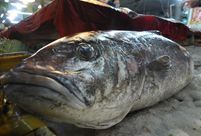 Bikini show in 2014 China Final of Miss Tourism World
Bikini show in 2014 China Final of Miss Tourism World
 Close-up view of August Aerobatic Team
Close-up view of August Aerobatic Team
 Goddesses married in 2014
Goddesses married in 2014
 Polar region photos raise worldwide awareness of global warming
Polar region photos raise worldwide awareness of global warming
 Get off at the last stop — Beijing Subway in vision
Get off at the last stop — Beijing Subway in vision
 Top 100 beauties in the world!
Top 100 beauties in the world!
 Gallery: Who is the most beautiful one?
Gallery: Who is the most beautiful one?
 If you like autumn, put your hands in the air!
If you like autumn, put your hands in the air!
 Fan Bingbing's "Queen style" in new play
Fan Bingbing's "Queen style" in new play
 Lingerie show at 2014 Miss China
Lingerie show at 2014 Miss China
Outflow lets country play role in global restructuring, think tank says
China is poised to become a net capital exporter for the first time, with total overseas direct investment exceeding foreign direct investment by the end of the year, the head of a top Chinese think tank said at a forum on Sunday.
"China is transforming from a major commodity exporter to a capital exporter," said Zeng Peiyan, chairman of the China Center for International Economic Exchanges.
"The large going-out of Chinese capital means the country is able to participate in the restructuring of global industrial, supply and value chains, which are the keys to foster new competitive advantages," he said.
Zeng, also a former vice-premier and top economic policy planner, predicted that the economy will stabilize in 2015, supported by deepened reform and faster development of the service sector.
The middle-income group will be the main force to stabilize domestic demand, he said. "As the group is expanding, 600 million people will be middle-income by 2020. Total consumption is expected to be tripled by then compared with that in 2010."
Also at the forum, which was held by the country's top think tank China Center for International Economic Exchanges, the central bank's deputy governor Yi Gang said that the Chinese currency exchange rate will "basically remain stable" at a reasonable and balanced level.
"The Chinese yuan is the world's second-strongest currency, just behind the US dollar, although it has depreciated by 2.1 percent against the dollar so far this year," Yi said.
"The central bank is stepping away from the normal intervention in the foreign exchange market," said Yi. "The foreign exchange policy will be more market-determined, supported by the current stable foreign exchange reserve."
"It is impossible to see a straight rise of the yuan against the dollar in the near future.
"The exchange rate fluctuation, both upward and downward, will be more flexible," he said.
Since the United States Federal Reserve announced the end of its quantitative easing policy, the euro has fallen 10 percent against the US dollar and the Japanese yen has weakened by 11 percent.
The Russian rouble has fallen about 45 percent against the dollar this year and suffered a dramatic slide early last week.
The stronger dollar may continue to put downward pressure on other major currencies, especially for emerging countries, economists predicted.
The combination of a gradual improvement in global demand, a relatively sluggish domestic economy and declining global commodity prices has largely widened China's current account surplus, which has put additional upward pressure on the currency since June.
JPMorgan chief Chinese economist Zhu Haibin said he expected that the country's current account surplus would widen to 3.1 percent of GDP this year, and rise to 3.5 percent in 2015, up from 2.1 percent in 2013.
A strong dollar should be a major challenge for Chinese yuan movements in 2015, Zhu said.
"In the first half of next year, the yuan is likely to move to above 6.2 against the dollar amid weak domestic economic performance and a strong dollar buoyed by expected Fed tightening," he said.
Zhu also said he expected more exchange-rate volatility, and the yuan may appreciate back to 6.15 at the end of 2015.
 Joint anti-piracy drill
Joint anti-piracy drill Unknown 'monster' fish caught in Shandong
Unknown 'monster' fish caught in Shandong 20 years on: Relocated Three Gorges residents through lens
20 years on: Relocated Three Gorges residents through lens Beautiful Chinese woman
Beautiful Chinese woman Chestnut girl goes viral online
Chestnut girl goes viral online PLA HK Garrison veterans leave behind beautiful smiles
PLA HK Garrison veterans leave behind beautiful smiles Victoria's Secret Fashion Show
Victoria's Secret Fashion Show Representative beauties
Representative beauties Excellent photos of Zhuhai Air Show
Excellent photos of Zhuhai Air Show Thaw in US-Cuba ties offers broad lessons
Thaw in US-Cuba ties offers broad lessons China keeping close eye on ruble
China keeping close eye on ruble Macao’s relations with mainland strong despite Hong Kong protests
Macao’s relations with mainland strong despite Hong Kong protests Chinese literature steps up going abroad while online literature booms
Chinese literature steps up going abroad while online literature boomsDay|Week|Month